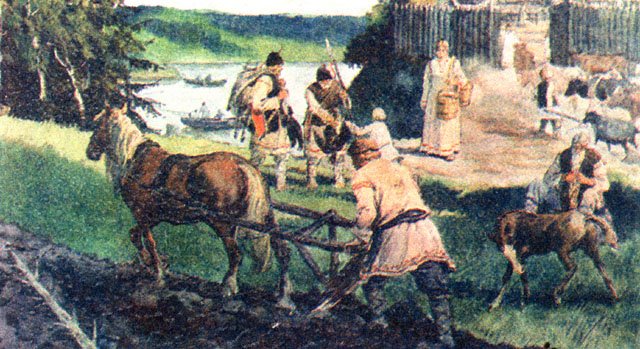Consequences Created On Our Behalf
Kosovo and unintended consequences
Posted: January 12, 20081:00 a.m. Eastern
By Joseph Farah
© 2008
As Kosovo goes, so goes northern Cyprus?
That's the way the Turkish Cypriots see it.
They can't see any distinction between the West's plans for a new "independent" state of Kosovo and the aspirations of Turkey for an independent Turkish Cyprus.
It's just one more reason against the creation of a new state of Kosovo, where none has ever existed before.
The real problem with these fanciful new "independent" states is that they are not independent at all. Both will be aligned with Islamic world, where freedom, individual liberties and respect for peaceful neighbors and non-Muslim minorities are virtually unknown concepts.
This is what happens when globalists start redrawing maps of the world in ways they think are beneficial to them - with or without understanding the consequences of those actions.
New rules are being established - new rules that make no sense.
But have no illusions. The Turks are chomping at the bit to make their move in Cyprus - even before the seemingly inevitable agreement to grant Kosovo statehood is approved.
"When diplomatic efforts are exhausted, other alternatives are put on the table," explains Fulya Özerkan, a senior Turkish Cypriot official. "We clearly see this in Kosovo where diplomacy proved futile, and other formulas are floating around. This will certainly have an impact on Cyprus."
Özdil Nami was appointed by Turkish Cypriot President Mehmet Ali Talat last month to chair negotiations with the EU and United Nations for a settlement to the Cyprus dispute.
"Everyone sees 2008 as the last window of opportunity for a solution to the Cyprus problem, and especially Turkey's friends in the EU are pressuring the Greek Cypriots not to accept the status quo and to back initiatives for a settlement, and warning other alternatives could be on the agenda otherwise," he told the Turkish Daily News.
Nami, elaborating on the alternatives, compared the Cyprus problem with the deadlocked talks over the future of Kosovo.
"Balances are changing in Europe," he said. "What do we see in the case of Kosovo or Bosnia? When diplomatic efforts are exhausted other alternatives are put on the table. We clearly see this in Kosovo where diplomacy proved futile and other formulas are floating around. This will certainly have an impact on Cyprus."
As the EU nations failed to resolve the deadlock over Kosovo during negotiations this month, ethnic Albanians in this province pledged to proclaim independence from Serbia early this year. The United States and several EU states have indicated they will recognize it.
EU-member Greek Cyprus remains the only member blocking a unanimous position on Kosovo - both concerning recognizing its independence and on sending a 1,800-strong force there.
What are the dynamics for conflict here?
Russia supports Serbia's position that Kosovo has always been and should always be a part of Serbia.
Russia likewise supports Greece in its position on Cyprus.
How many times will Russia sit back and accept these pokes in the eye without retaliation?
But, making matters worse for the West, Russia happens to be right in both cases.
There is nothing to be gained by supporting the breakup of sovereign nations, unless you view it from the position of those whose real agenda is to break up all sovereign nations - confederating them all under regional and eventually global governments.
Those are the real stakes in Kosovo - not to mention the fact that recognizing the independence of Kosovo will be rewarding a Muslim terror campaign that has killed, raped and maimed countless Christians, burned down churches and ethnically cleansed the region in anticipation of statehood.
That's why I dissent on this global rush to welcome Kosovo into the community of nations.
Joseph Farah is founder, editor and CEO of WND and a nationally syndicated columnist with Creators Syndicate. His latest book is "Stop The Presses: The Inside Story of the New Media Revolution." He also edits the online intelligence newsletter Joseph Farah's G2 Bulletin, in which he utilizes his sources developed over 30 years in the news business.

















